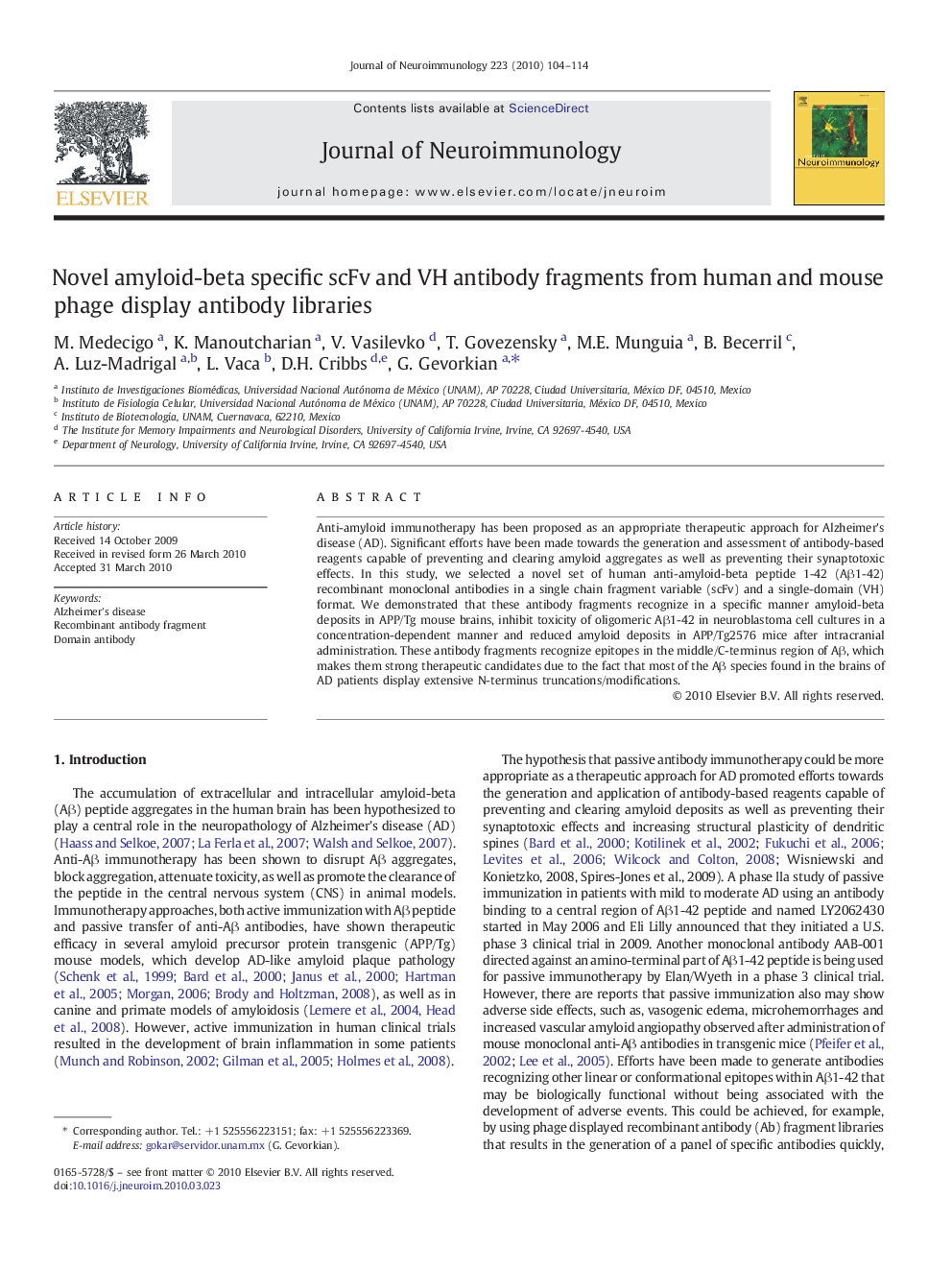| Article ID | Journal | Published Year | Pages | File Type |
|---|---|---|---|---|
| 3064718 | Journal of Neuroimmunology | 2010 | 11 Pages |
Anti-amyloid immunotherapy has been proposed as an appropriate therapeutic approach for Alzheimer's disease (AD). Significant efforts have been made towards the generation and assessment of antibody-based reagents capable of preventing and clearing amyloid aggregates as well as preventing their synaptotoxic effects. In this study, we selected a novel set of human anti-amyloid-beta peptide 1-42 (Aβ1-42) recombinant monoclonal antibodies in a single chain fragment variable (scFv) and a single-domain (VH) format. We demonstrated that these antibody fragments recognize in a specific manner amyloid-beta deposits in APP/Tg mouse brains, inhibit toxicity of oligomeric Aβ1-42 in neuroblastoma cell cultures in a concentration-dependent manner and reduced amyloid deposits in APP/Tg2576 mice after intracranial administration. These antibody fragments recognize epitopes in the middle/C-terminus region of Aβ, which makes them strong therapeutic candidates due to the fact that most of the Aβ species found in the brains of AD patients display extensive N-terminus truncations/modifications.
